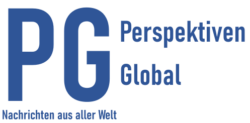Hilferuf aus Gaza: Palästinenser bitten um Rettung vor Hamas, nicht Israel
Displaced Gazans have started to call for support against Hamas in the ongoing conflict between Israel and the ruling Hamas terror group in the enclave, as reported by Saudi media on Friday. „Save us from Hamas before the Jews. I appeal to every living conscience to watch. These are traders in our blood. Every day they trade in our blood,“ one Palestinian pleaded in a viral video, according to the Saudi Al Marsd report. „Our children and women are in the streets. Oh, conscience of the world, save us from Hamas before the Jews,“ he continued.
The man, who had been displaced from Khan Yunis on Friday, was reported by Walla. Some Palestinians in Gaza have spoken out against Hamas and its actions to maximize the impact of the war on civilian populations. Hamas has been accused of stealing humanitarian aid meant for civilians and, in July, was caught on camera beating hungry Gazans trying to access resources from a warehouse. Terrorists were seen beating a restrained and blindfolded civilian with sticks.
Despite polls showing widespread support for the terror group, Arab media outlets like the Qatari state-owned Al Jazeera network have been found censoring criticism of Hamas. In June, Al Jazeera was caught cutting short the statement of a Gazan doctor wounded in Operation Arnon, where four hostages were rescued. An uncut clip of the doctor referred to the „rotten [Hamas] leadership“ as „scum“ and blamed them for civilian casualties during the operation.
In another incident recorded in November, an Al Jazeera journalist ended an interview with a patient at a Gazan hospital who criticized Hamas. Disputed footage from January also suggested that Gazans, ‚Bidna N’eesh’ (‚We want to live‘), had tried to protest against Hamas in the Gaza Strip. Dr. Baxtiyar Baram, a Kurdish physician who volunteered in northern Gaza, stated that Hamas refused medical treatment to Palestinians they disliked and claimed that only 10% of the population supported the terror group.
Ohad Merlin and Seth Frantzman contributed to this report.
